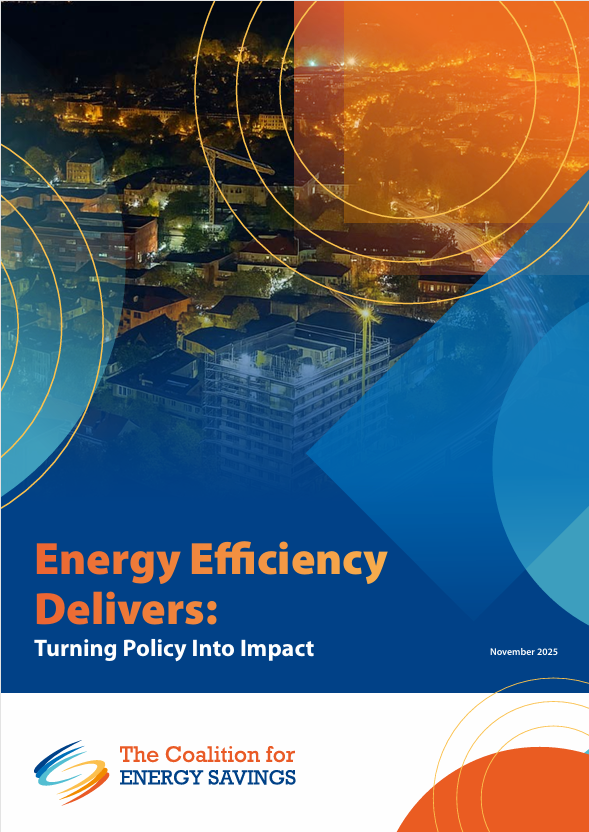Energy Efficiency Delivers: Turning Policy Into Impact

In legislative terms, 2040 is just around the corner. With the recent publication of the European Commission’s 2026 Work Programme, discussions on the future of the energy efficiency policy framework are imminent.
Energy efficiency is an unsung EU success story: energy efficiency legislation, namely the Energy Efficiency Directive, the Energy Performance of Buildings Directive, and the Ecodesign and Energy Labelling Regulations, has driven energy efficiency action on the ground and delivered benefits to citizens and businesses by sending a clear investment signal for businesses and investors. It has prompted the emergence of a strong and vibrant home-grown industry that is at the heart of the energy transition in Europe, supporting competitiveness but also the just energy transition.
The European Union must build on this success. First, it must redouble its efforts to ensure that implementation not only follows its course, but that it is strongly prioritised through political commitment and resources. Second, it must build on the existing legislative framework when shaping rules for the next decade, preserving what has worked and has delivered results. Finally, while simplification is a valid concern to optimise and fast-track delivery, the EU must ensure the predictability that stakeholders need to continue investing in energy efficiency, so that it can deliver on all fronts – competitiveness, affordability, energy security, and many more.
This report showcases through a variety of success stories how the Energy Efficiency Directive has initiated and continues to drive real and tangible results on the ground, improving the lives of citizens and creating economic growth. It should be used as an inspirational guidebook and an important reminder that energy efficiency delivers and that an ambitious and stable regulatory framework is the first tool to unlock its many benefits.
RELATED ARTICLES
Planning for the 2023 EED: are EU countries up to the task? Updated analysis, April 2024
The update of the National Energy and Climate Plans (NECPs) is a pivotal first step to ensuring that the objectives of the Fit For 55 Package and REPowerEU are met and the revised legislation, including the 2023 Energy Efficiency Directive (EED), is correctly...
2040 Climate Target: No decarbonisation without energy savings.
On February 6, the European Commission published the communication on the 2040 climate target accompanied by an Impact Assessment (IA). It recommends that the EU cuts its greenhouse gas (GHG) emissions by a net 90% by 2040. The below briefing reviews how energy...
Planning for the 2023 EED: Are EU countries up to the task?
With only seven years to achieve the new 2030 EU energy efficiency target, national measures to implement the Energy Efficiency Directive (EED) must be put in place without delay to accelerate energy saving actions across sectors. While the 2023 EED has just entered...
